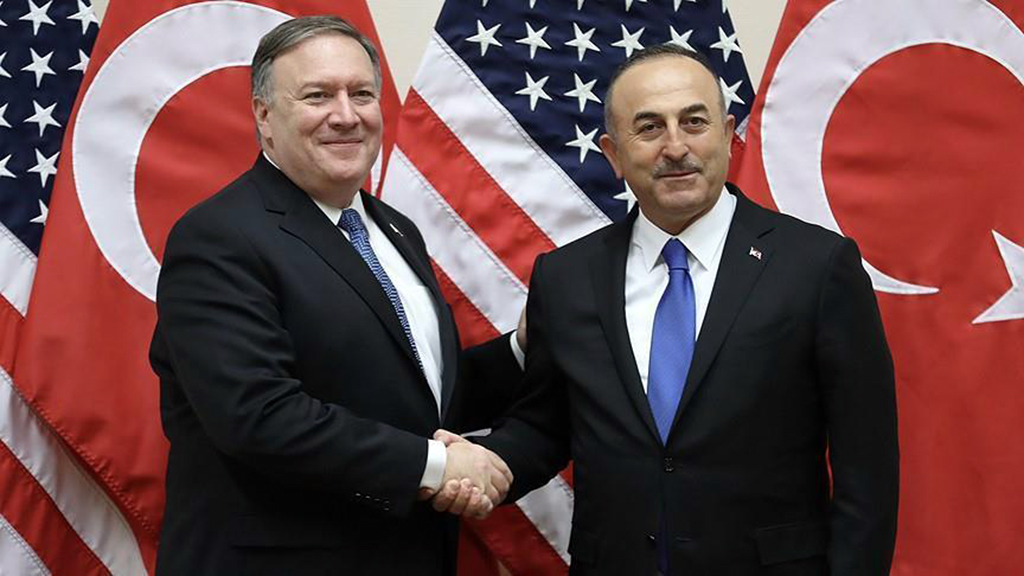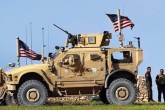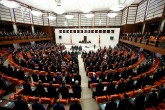Since the resolution of the Brunson issue between Turkey and the U.S., there has been an increasing level of high-level diplomatic interaction between the two countries. The presidents of the two countries talked multiple times on the phone on many topics, while meetings between top diplomats and defense personnel have become more frequent. In particular, since the appointment of the new Syria team in the U.S. administration, the atmosphere in regards to the most challenging issue has also changed in the last two months. The personnel change in the U.S. administration is considered as the first step towards resetting the derailed relations between Turkey and the U.S. in Syria. However, this was only the first step, and the more challenging aspect of it could result in further tensions in relations.
First of all for Turkey, the People’s Protection Units (YPG) problem will continue to be critical for its national security. Despite all forms of artificial distinctions, Turkey knows that the PKK and the YPG are the same group, and as mentioned in the previous column, it will make this issue one of the linchpins of its policy on Syria. The Manbij road map agreement was a good start for building trust, as it was the fulfillment of an earlier promise by the U.S. government. However, delays in the process raised too many question marks. Following the appointment of the new team, the announcement of the rewards for the three PKK leaders by the State Department was welcomed by the U.S. Once more there was cautious optimism. This announcement came a few days after the beginning of the joint patrol by U.S. and Turkish forces in Manbij. Last week, Secretary of Defense James Mattis announced that the U.S. would build outposts in Turkey on the Syria border. Mattis said: “Turkey, a NATO ally, has legitimate concerns about terrorist threats and from where they’re emanating. … We don’t dismiss any of their concerns.” Accordingly, the outposts aim to warn Turkey if there is any movement by YPG members from northern Syria towards Turkey. This is another welcome development for building trust between the two countries. These confidence-building measures, especially between the security forces of Turkey and the U.S., are very important, since Turkish security forces suffered casualties and had to deal with attacks by the PKK against Turkey for the last several decades. When the U.S. started to support the YPG elements, it was perceived as a major shock, coming from a fellow NATO ally. In the next phase of the Syrian civil war, the U.S. needs to come up with plans to convince the Turkish side about the eradication of PKK elements and empowerment of the local population in Syrian Democratic Forces (SDF) held territories. It also needs to provide a road map not only for understanding Turkey’s concerns but also to reassure it. It has to be a policy developed through the interagency processes.
The two countries also need to build confidence in other issue areas pertaining to Syria. The Idlib agreement and the U.S. endorsement of Turkey’s efforts to prevent another major humanitarian disaster in the region was another positive step in bilateral relations in Syria.
However, the sensitivity of the situation in the region will necessitate the continuation of U.S. support for Turkey’s attempts to curb another regime offensive on heavily populated areas in the region. For the U.S., Idlib was very significant due to the emphasis of the U.S. administration on the Geneva process. The political solution and the potential coordination of policies between the U.S. and Turkey can eliminate another major spoiler in relations. The constitution-writing process and a political resolution will be areas where coordination by the two countries will be necessary. By now, many in the U.S. also understood the critical importance of Turkey when it comes to the stabilization and reconstruction of the country. As the host of more than 3.5 million refugees, Turkey can play a crucial role in the reconciliation process and in the reconstruction of the country.
Of course there will be a need for a delicate balance considering the presence of the Astana process and Turkey’s coordination with Russia west of the Euphrates. Both Russia and the U.S. understand that Turkey is a critical element for any form of solution in the conflict and for the future of Syria. In this equation Turkey wants to follow a policy that will be considerate of its national security and for the long-term stability of Syria at the same time. As many have seen in the last few years, what happens in Syria does not stay in Syria but has become an issue of international security. Thus, long-term planning is necessary to handle the issue of Syria in Turkish-American relations.
[Daily Sabah, 24 November 2018]
In this article
- Opinion
- Civil War
- Daily Sabah
- Idlib
- Kurdistan Workers' Party Terrorist Organization (PKK)
- Middle East
- NATO
- NATO Ally
- People's Protection Units (YPG)
- PKK - YPG - SDF - PYD - YPJ - SDG - HBDH - HPG - KCK - PJAK - TAK - YBŞ
- Russia
- Syria
- Syrian Civil War
- Syrian Conflict
- Syrian Crisis
- Turkish Foreign Policy
- Turkish-American Relations
- Türkiye-US Relations
- Türkiye's Foreign Policy
- Türkiye's Republican People's Party (CHP)
- United States (US)



